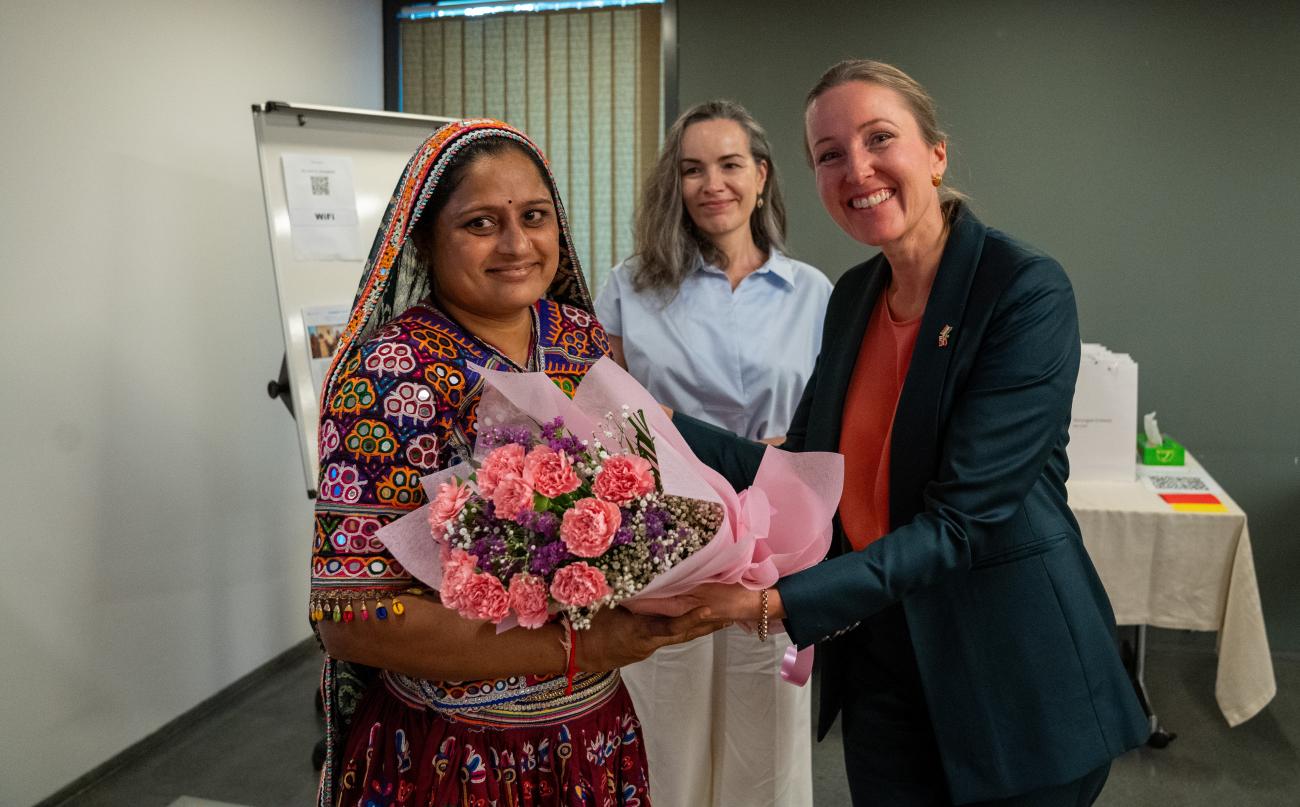Policymakers, experts and farmer representatives from across India have come together to discuss how to assist women farmers so they can tackle the unique challenges they face.
Speakers at a symposium, held on 18 June in New Delhi and jointly organized by the Royal Embassy of Norway and the UN World Food Programme (WFP), offered recommendations and insights on expanding women farmers’ access to land, inputs, training, and government schemes.
The symposium heard how social norms affect women farmers and limit their access and opportunities, despite their significant contribution to farming. The agriculture sector employs 80% of all economically active women; they comprise 33% of the agricultural labor force and 48% of self-employed farmers. Yet women own less than 15% of landholdings.
"We are delighted to collaborate on a symposium series to enhance the resilience of smallholder women farmers against climate change impacts. Empowering women farmers is a priority in Norwegian development policy, as it is crucial in the fight against hunger and food insecurity," said Ms. Martine Aamdal Bottheim, Minister Counsellor & Deputy Head of Mission, Royal Norwegian Embassy in New Delhi.
“We are very excited about the recently launched project in Assam, where we are partnering with the Norwegian and Assam Governments to support farmers, especially women, in adapting to climate change and building resilience,” Ms. Elisabeth Faure, Representative and WFP Country Director in India, said.
“Women's economic empowerment is a key focus in India to achieve sustained gender equality, a crucial goal in human development. Women play a vital role in agriculture, enhancing productivity and income. Closing the gender gap in resource access is essential for increasing agricultural output in developing countries,” said Mr. Anil Jain, Deputy Secretary, Ministry of Agriculture & Farmers Welfare, Government of India.
“We know what role social norms play in limiting women's access to land, government schemes, and entitlements. Therefore, we must focus on literacy and awareness about government schemes and enable women's access to them,” Dr. Vineeta Kumari, Deputy Director of MANAGE, said.
A highlight of the symposium was a testimony of change shared by Sakhiben Khengarbhai Ahir, a member of the Self-Employed Women’s Association (SEWA), who said: “Though we had small land holdings in drylands, nothing grew due to water scarcity. When women came together, they created water-harvesting structures, started agriculture, and processed and sold produce through the collective led by SEWA.”
Celebrating the role of women’s collectives in creating ownership and a sustainable model, Ms. Megha Desai, National Coordinator, SEWA, said: “Access to finance and markets is a persistent challenge for farmers, especially small farmers and women. This includes the availability of productive resources and technology. Farmers need to be seen as entrepreneurs and farming as an enterprise.”
The Indian Government is dedicated to doubling farmers' incomes by 2030. It has made significant efforts to include women farmers in its policies and schemes. Initiatives such as the Deendayal Upadhyay National Rural Livelihoods Mission and the Mahila Kisan Sashaktikaran Pariyojana (MKSP) -- or Women Farmer Empowerment Programme -- have been implemented to increase farmer incomes and create diverse livelihoods. Institutions such as the ICAR-Central Institute for Women in Agriculture (CIWA) are focused on developing improved technology and practices tailored to the needs of women farmers.
To support the Government’s endeavors, WFP and the Embassy of Norway in India have joined forces to organize three symposia on women farmers in 2024. The last symposium will focus on women farmers' role in building climate resilience, with a focus on farm/off-farm livelihoods.







